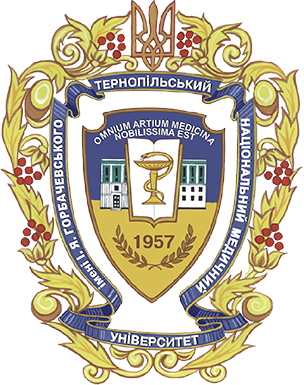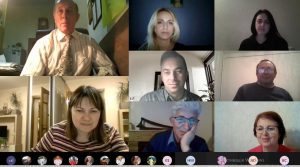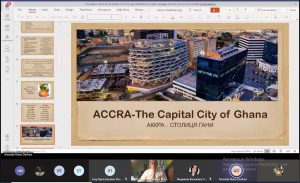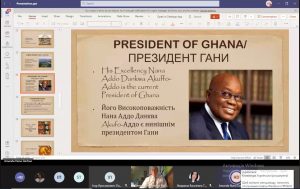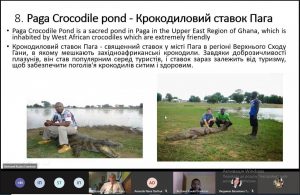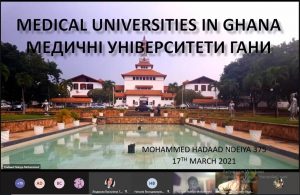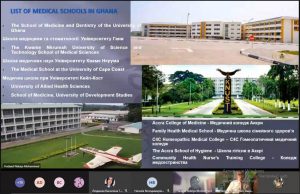TNMU Students Learned about the Culture of Ghana
An on-line educational event on “History, culture, traditions, places of interest and health care of Ghana” for the students of curatorial groups was organized by the Department of Physiology, Bioethics and Biosafety.
The meeting started with a greeting by Professor Vadziuk S.N., the head of the department. The teachers of the department regularly meet with students, are interested in the traditions of their peoples. That is why it was decided to organize an on-line meeting; its speakers were natives of Ghana. The head of the department also noted that recently it was the Independence Day of Ghana; he congratulated the students of this country.
A report on the history, culture, architectural monuments, famous people of Ghana was presented by English-speaking students in English and Ukrainian.
Teachers of the department, group curators: Professor Vadziuk S.N., Assistant Professor Kashchak T.V., Assistant Professor Tatarchuk L.V., Associate Professor Ratynska O.M., Assistant Professor Shmata R.M., Associate Professor Pankiv I.B., Associate Professor Papinko I.Ya., Associate Professor Zyatkovska N.Ye.
The teaching staff together with the students of the curatorial groups listened to an interesting presentation of the student of the group 376 Darfour Amanda Nana on “Ghana: history, geographic position, culture”.
Ghana is called the “Gold Coast” because of the large amount of gold; it is geographically located closer to the “center” of the Earth’s coordinates than any other country. It is also interesting that the largest in area artificial reservoir in the world –Volta Lake is situated there.
Ghanaian cuisine includes a variety of soups and seafood stews. Most dishes are prepared with vegetables, meat, poultry or fish (Ghana jolof rice, fufu with light soup, kenki with fish, eggs and shrimp, and tilapia).
Bertrand Kuku Crankson, a student of the group 374 of the International Students Faculty, presented an interesting report about the tours to Ghana. The audience was interested in the report on Elmina Castle, Larabanga Mosque, which is the oldest in West Africa, the village of Nzulezo, built exclusively of sticks and platforms, Kakum National Park, Afadja Mountain, Paga crocodile pond.
Michaela Abby, the student of the group 374 presented very interesting information about culture, festivals and national cuisine of Ghana. It is exciting to know that Ghana’s 24 million citizens include six major ethnic groups, which are divided into 60 smaller ones, speaking 52 languages and hundreds of dialects.
The festivals in Ghana are celebrated on any occasion that related to a particular tribe or culture; usually they were accustomed by historic events of that culture, e.g. famine, migration, etc.
Hadad Ndeya Mohamed, a student of the group 374 of the International Students Faculty, also presented interesting information on “Medical University of Ghana”.
Usually, it takes at least seven years to become a general practitioner. After four years of medical school you need to pass a residency, which is an intensive practical training in a particular medical specialty in medical institutions.
Information by Kashchak T.V., Assistant Professor of the Department of Physiology, Bioethics and Biosafety
